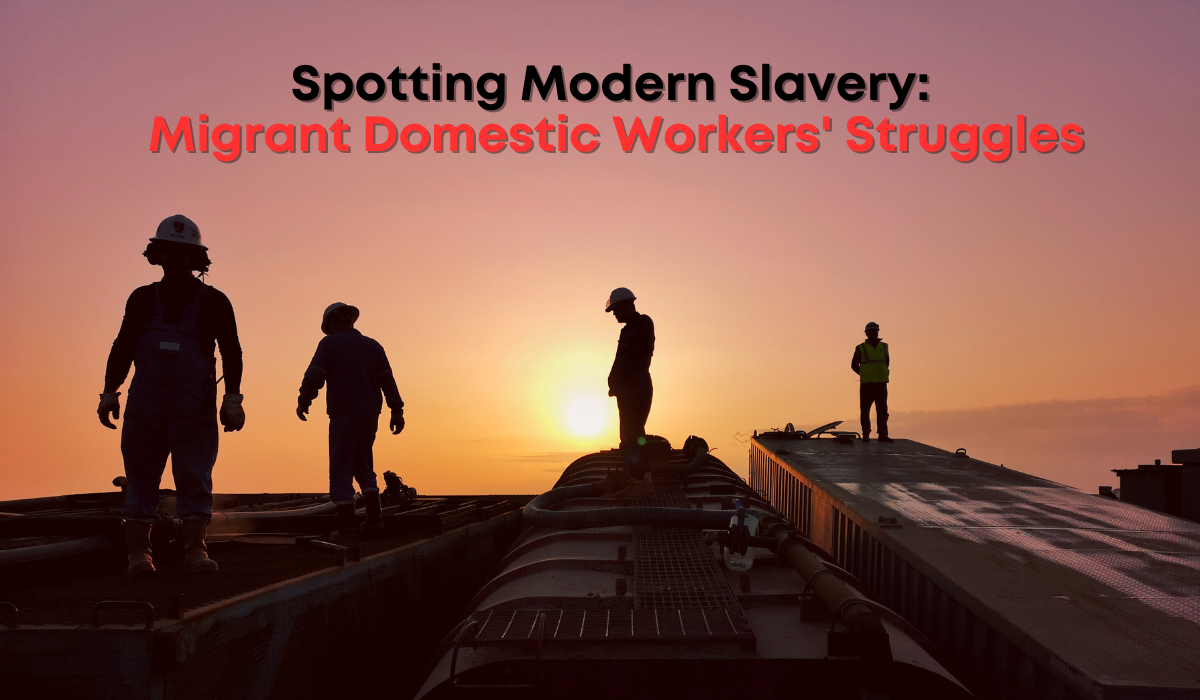In an increasingly interconnected world, migrant domestic workers are an integral part of many UK households, fulfilling roles as cleaners, cooks, nannies, and carers. However, beneath this seemingly ordinary arrangement lies a darker reality for some: modern slavery. The Overseas Domestic Worker visa enables individuals to accompany their employers to the UK for up to six months. While many use this route legitimately, it is also a known avenue for trafficking and exploitation. Identifying victims of modern slavery among this vulnerable group is crucial.
Modern Slavery: A Legal Overview
Modern slavery is defined in the Modern Slavery Statutory Guidance published by the Home Office. It encompasses human trafficking, slavery, servitude, and forced or compulsory labour. These practices are prohibited under Article 4 of the European Convention on Human Rights (ECHR).
Human Trafficking
Under the Council of Europe Convention on Action against Trafficking in Human Beings (2005), trafficking requires three elements:
- An act (e.g., recruitment or transportation),
- A means (e.g., threats, coercion, or deception), and
- A purpose of exploitation (e.g., servitude or forced labour).
Consent is irrelevant when coercion or abuse of power is involved. A domestic worker who has been recruited under false pretenses or subjected to threats meets this definition.
Servitude
Servitude is an aggravated form of forced labour. Victims often feel their situation is permanent and inescapable. The Modern Slavery Statutory Guidance highlights domestic servitude as involving individuals forced to work under exhausting conditions, often with little or no pay. Their freedom of movement is restricted, and passports may be withheld by employers.
Forced Labour
Forced labour occurs when a person works under the threat of a penalty, such as deportation or homelessness. Unlike servitude, it does not require the same permanence, but the lack of viable alternatives plays a significant role.
Identifying the Signs of Exploitation
Domestic workers may not recognize they are being exploited, making it essential for advocates, solicitors, and community organizations to be vigilant. Common indicators include:
- Long hours with minimal pay: Often below the minimum wage or entirely unpaid.
- Poor living conditions: Overcrowded or unsanitary accommodations.
- Restricted freedom: Employers controlling their movements and access to communication.
- Psychological and physical abuse: Intimidation, threats, or actual harm.
- Withholding of travel documents: Employers retaining passports to limit the worker’s autonomy.
The Role of the National Referral Mechanism (NRM)
The NRM is the UK’s framework for identifying and supporting victims of modern slavery. A referral initiates a two-stage process:
- Reasonable Grounds Decision: Determines whether there are grounds to suspect the individual may be a victim.
- Conclusive Grounds Decision: Establishes whether, on the balance of probabilities, the person is a victim of modern slavery.
Despite its importance, the NRM is not infallible. Negative decisions often arise from insufficient evidence or misapplication of the legal definitions. In R (NM) v Secretary of State for the Home Department [2017] EWHC 2798, the court underscored the need to consider each element of modern slavery—trafficking, servitude, and forced labour—separately.
Challenging Negative Decisions
If a domestic worker receives a negative decision at either the reasonable or conclusive grounds stage, it is vital to act swiftly:
- Request reconsideration: Present new evidence or highlight procedural errors.
- Judicial review: Challenge the decision in court where appropriate.
Recognizing a domestic worker as a victim of modern slavery can lead to vital support and even leave to remain in the UK. For many, this is a lifeline, offering protection from re-trafficking and a pathway to recovery.
Legal and Community Support
Migrant domestic workers facing exploitation require immediate assistance. Specialist organizations like Kalayaan, Anti-Slavery International, and The Salvation Army provide critical support, including legal advice, housing, and psychological care. Engaging with these services can make a significant difference in helping victims rebuild their lives.
Raising Awareness and Advocacy
Public awareness is key to preventing modern slavery. Employers, community groups, and legal practitioners must be informed about the risks and indicators of exploitation. Empowering domestic workers with knowledge of their rights is equally important. Campaigns, social media outreach, and educational initiatives can amplify this message, ensuring no one suffers in silence.
Final Takes
Modern slavery among migrant domestic workers is a pressing issue that demands collective action. By identifying the signs, understanding the legal framework, and challenging unjust decisions, we can uphold the rights and dignity of these vulnerable individuals. It is a moral and legal imperative to ensure that every worker in the UK is treated fairly and protected from exploitation.
Get in touch: For a comprehensive understanding of your options or queries on UK immigration matters, contact GigaLegal Solicitors at 02074067654 or click here to book a no-obligation consultation with an immigration expert.


